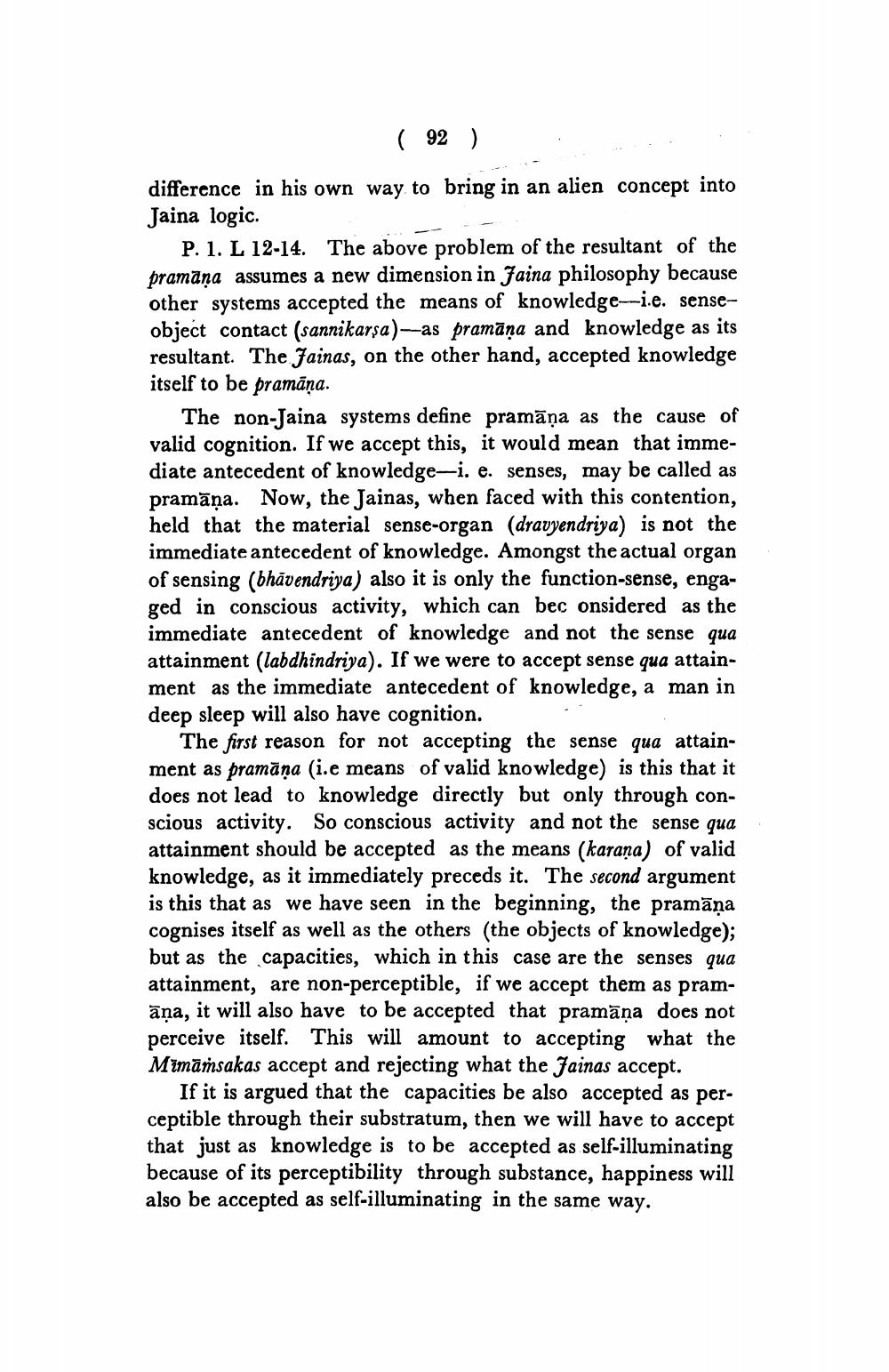________________
( 92 )
.
difference in his own way to bring in an alien concept into Jaina logic.
P. 1. L 12-14. The above problem of the resultant of the pramana assumes a new dimension in faina philosophy because other systems accepted the means of knowledge--i.e. senseobject contact (sannikarsa)--as pramāna and knowledge as its resultant. The Jainas, on the other hand, accepted knowledge itself to be pramāņa.
The non-Jaina systems define pramāna as the cause of valid cognition. If we accept this, it would mean that immediate antecedent of knowledge—i. e. senses, may be called as pramāna. Now, the Jainas, when faced with this contention. held that the material sense-organ (dravyendriya) is not the immediate antecedent of knowledge. Amongst the actual organ of sensing (bhāvendriya) also it is only the function-sense, engaged in conscious activity, which can bec onsidered as the immediate antecedent of knowledge and not the sense qua attainment (labdhindriya). If we were to accept sense qua attainment as the immediate antecedent of knowledge, a man in deep sleep will also have cognition.
The first reason for not accepting the sense qua attainment as pramāna (i.e means of valid knowledge) is this that it does not lead to knowledge directly but only through conscious activity. So conscious activity and not the sense qua attainment should be accepted as the means (karana) of valid knowledge, as it immediately preceds it. The second argument is this that as we have seen in the beginning, the pramāna cognises itself as well as the others (the objects of knowledge); but as the capacities, which in this case are the senses qua attainment, are non-perceptible, if we accept them as pramāņa, it will also have to be accepted that pramāņa does not perceive itself. This will amount to accepting what the Mimāṁsakas accept and rejecting what the Jainas accept.
If it is argued that the capacities be also accepted as perceptible through their substratum, then we will have to accept that just as knowledge is to be accepted as self-illuminating because of its perceptibility through substance, happiness will also be accepted as self-illuminating in the same way.




